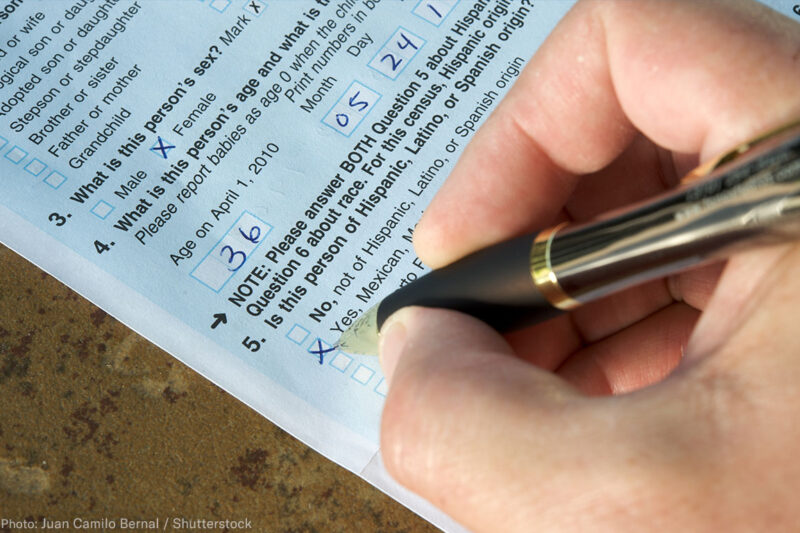ICE Deports 3 U.S. Citizen Children Held Incommunicado Prior to the Deportation
New Orleans, LA - Today, in the early hours of the morning, the New Orleans Immigration and Customs Enforcement (ICE) Field Office deported at least two families, including two mothers and their minor children – three of whom are U.S. citizen children aged 2, 4, and 7. One of the mothers is currently pregnant. The families, who had lived in the United States for years and had deep ties to their communities, were deported from the U.S. under deeply troubling circumstances that raise serious due process concerns.
ICE detained the first family on Tuesday, April 22, and the second family on Thursday, April 24. In both cases, ICE held the families incommunicado, refusing or failing to respond to multiple attempts by attorneys and family members to contact them. In one instance, a mother was granted less than one minute on the phone before the call was abruptly terminated when her spouse tried to provide legal counsel’s phone number.
As a result, the families were completely isolated during critical moments when decisions were being made about the welfare of their minor children. This included decisions with serious implications for the health, safety, and legal rights of the children involved–without any opportunity to coordinate with caretakers or consult with legal representatives.
These actions stand in direct violation of ICE’s own written and informal directives, which mandate coordination for the care of minor children with willing caretakers–regardless of immigration status–when deportations are being carried out.
Both families have possible immigration relief, but because ICE denied them access to their attorneys, legal counsel was unable to assist and advise them in time. With one family, government attorneys had assured legal counsel that a legal call would be arranged within 24-48 hours, as well as a call with a family member. Instead, just after close of business and after courts closed for the day, ICE suddenly reversed course and informed counsel that the family would be deported at 6am the next morning–before the court reopened.
That family filed a habeas corpus petition and motion for a temporary restraining order, which was never ruled on because of their rapid early-morning deportation.
In the case of the other family, a U.S. citizen child suffering from a rare form of metastatic cancer was deported without medication or the ability to consult with their treating physicians–despite ICE being notified in advance of the child’s urgent medical needs. In addition, one of the mothers who was deported is pregnant, and ICE proceeded with her deportation without ensuring any continuity of prenatal care or medical oversight.
These actions represent a shocking – although increasingly common–abuse of power. NOLA ICE has inflicted harm and jeopardized the lives and health of vulnerable children and a pregnant woman. The cruelty and deliberate denial of legal and medical access are not only unlawful, but inhumane.
Teresa Reyes-Flores, Southeast Dignity not Detention Coalition (SEDND) - “ICE’s actions show a blatant violation of due process and basic human rights. The families were disappeared, cut off from their lawyers and loved ones, and rushed to be deported, stripping their parents of the chance to protect their U.S. citizen children.”
Gracie Willis, National Immigration Project - ”What we saw from ICE over the last several days is horrifying and baffling. Families have been ripped apart unnecessarily. These mothers had no opportunity to speak with their co-parents to make the kinds of choices that parents are entitled to make for their children, the kinds of decisions that millions of parents make every day: “what is best for our child?” We should be gravely concerned that ICE has been given tacit approval to both detain and deport U.S. citizen children despite the availability and willingness of U.S.-based caregivers who, only because of ICE’s own actions, cannot find or contact them.”
Alanah Odoms, Executive Director of the ACLU of Louisiana - “Once again, the government has used deceptive tactics to deny people their rights. These outrageous actions must be condemned. We as a nation are better than this. These families deserve better. They must be returned.”
Fatima Khan, Louisiana Organization for Refugees and Immigrants (LORI) - “ICE’s actions today go far past the typical inhumanity of their detention operations in Louisiana. They ignored their own protocols on legal access and protecting children’s rights to enact an expedient deportation they know to be unlawful. Not only that, they disappeared these families before any U.S. Court could stand up for its children. We should all be mortified.”
Erin Hebert, Ware Immigration - “Deporting U.S. citizen children is illegal, unconstitutional, and immoral. The speed, brutality, and clandestine manner in which these children were deported is beyond unconscionable, and every official responsible for it should be held accountable.”
Homero López, Jr., Immigration Services and Legal Advocacy (ISLA) - “These deplorable actions demonstrate ICE's increasing willingness to violate all protections for immigrants as well as those of their children. These types of disappearances are reminiscent of the darkest eras in our country's history and put everyone, regardless of immigration status, at risk.”
Mich P. Gonzalez, Sanctuary of the South - “A government agency that sequesters and deports vulnerable mothers with their US citizen children without due process must be defunded, not rewarded with an additional 45 billion dollars to continue at taxpayers’ expense. These families were lawfully complying with ICE’s orders and for this they suffered cruel and traumatic separation. If this is what the Trump administration is orchestrating just three months in, we should all be terrified of what the next four years will bring.”



